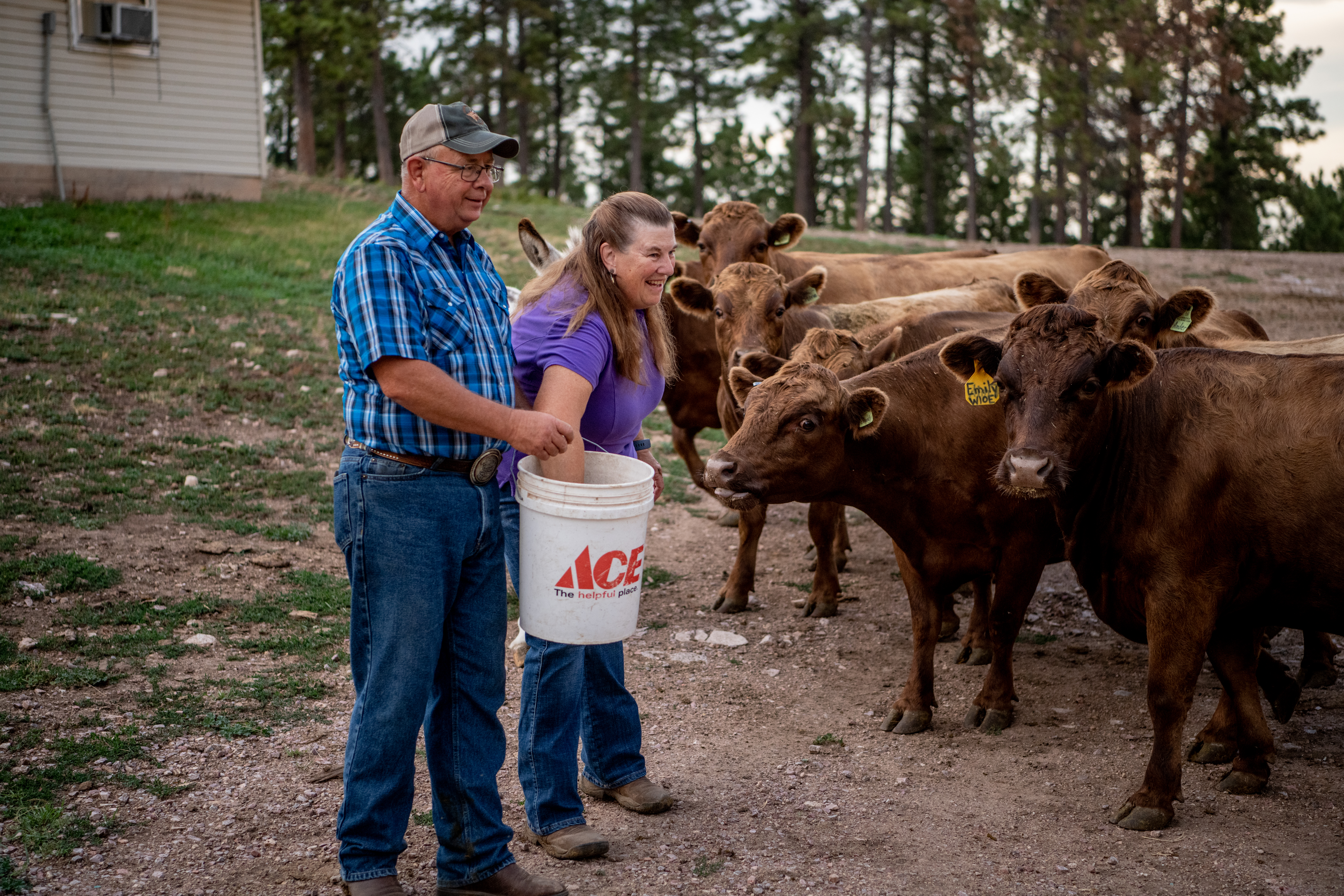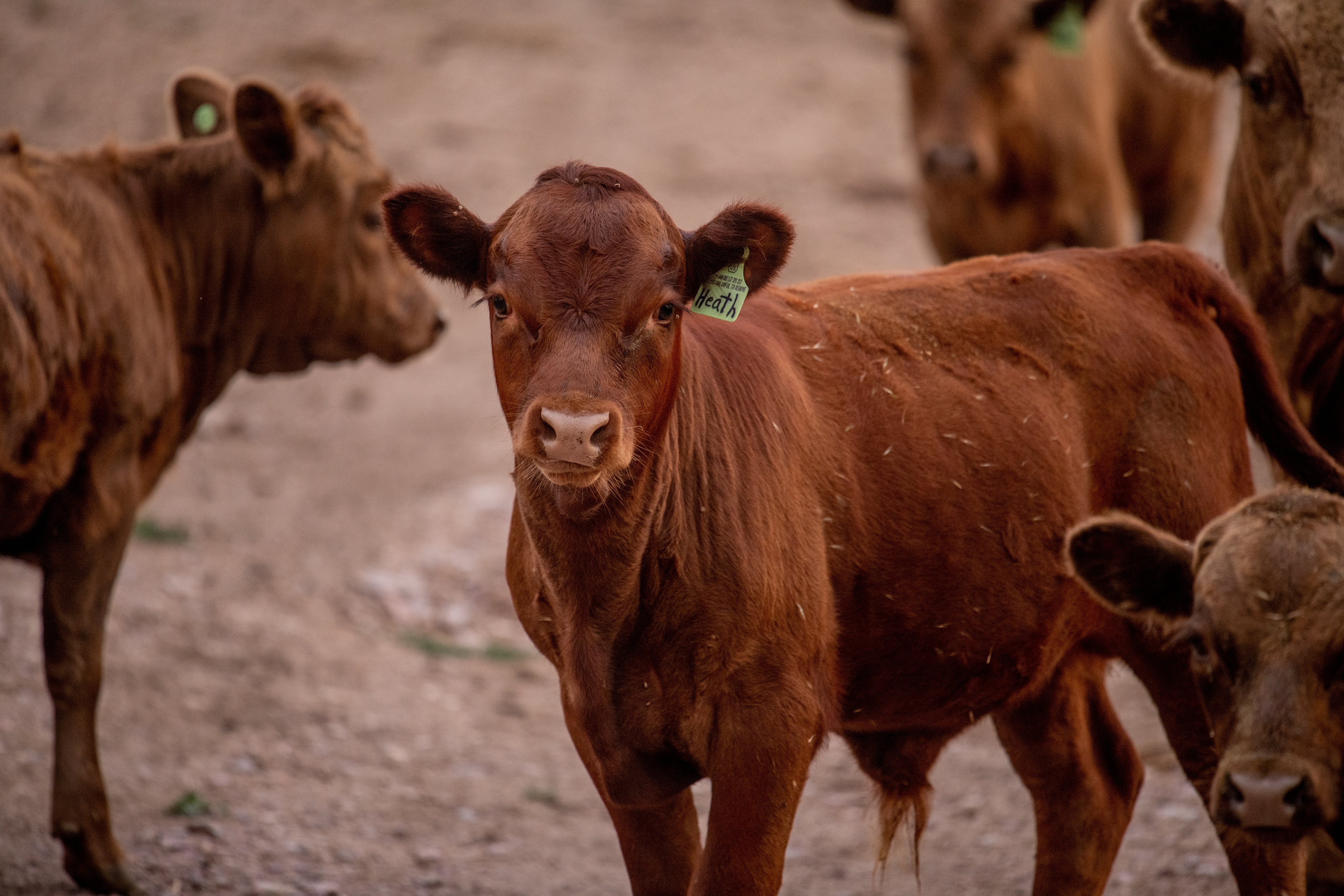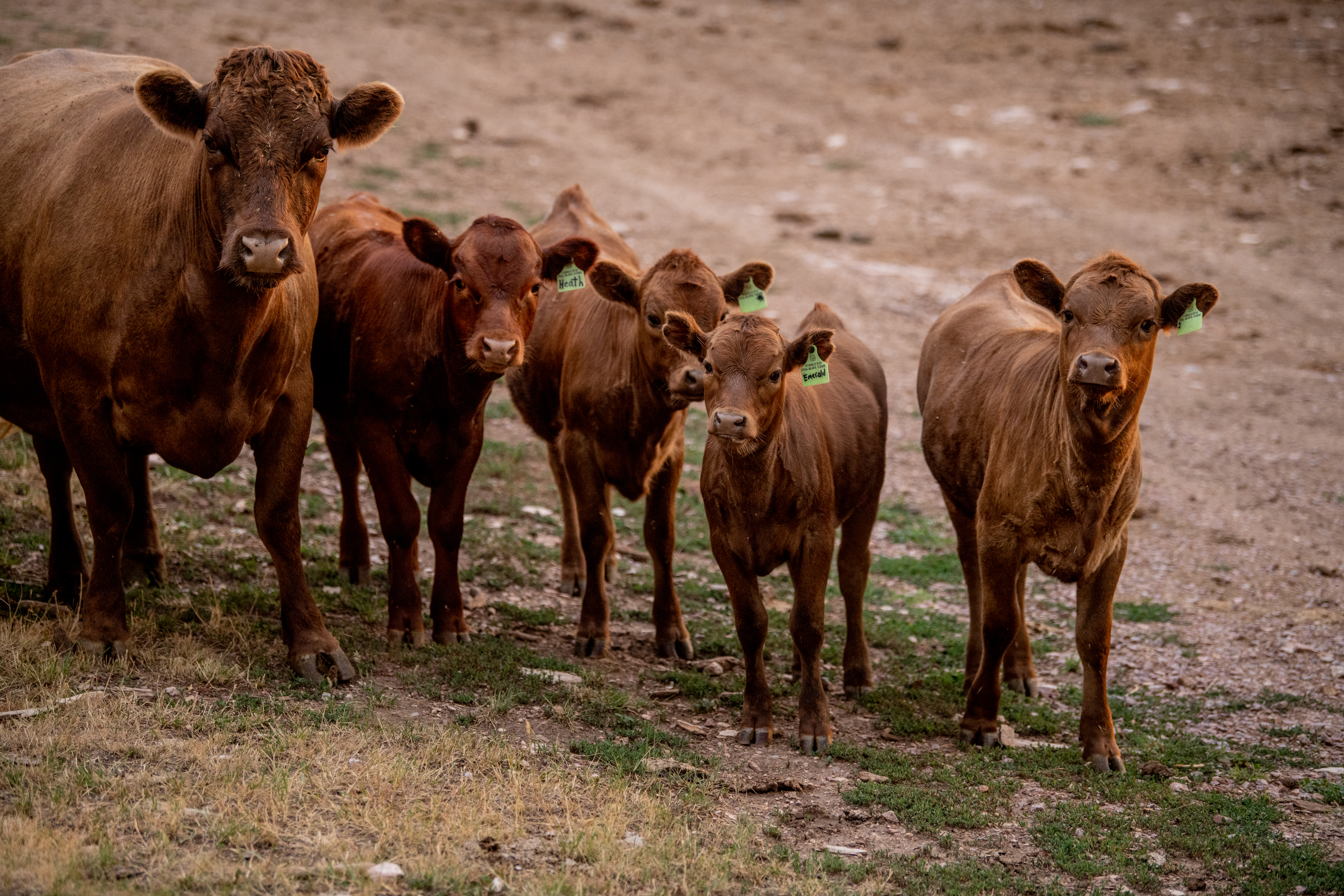Hot Springs Couple Raise Dexters for Beef & Breeding
When Jim and Peggy Woehl became empty nesters in 2000, these lifelong ranchers wanted to continue raising cattle. They never imagined that breeding would become just as important as selling beef.
“When we started this, we thought we would have a few, raise a little beef, sell to local customers and that would be it,” Jim recalls. “Over the past 20 years, with more and more people leaving the city and buying small acreages, people are wanting to be more self-sufficient and not rely on the local grocery store for their beef. The current pandemic has pushed it to a new level.”
 The Woehls both grew up on commercial ranches but had limited their herd to a few grade Angus on their 300-acre spread outside Hot Springs while raising their children. They were drawn to Dexters because of the breed’s overall heartiness and docile temperament. The animal’s smaller size — they’re about half as large as a commercial cow — was a plus given the couple’s limited acreage. At the time Dexters were on the Livestock Conservancy’s endangered list but have since been moved to the watch list after making an impressive comeback.
The Woehls both grew up on commercial ranches but had limited their herd to a few grade Angus on their 300-acre spread outside Hot Springs while raising their children. They were drawn to Dexters because of the breed’s overall heartiness and docile temperament. The animal’s smaller size — they’re about half as large as a commercial cow — was a plus given the couple’s limited acreage. At the time Dexters were on the Livestock Conservancy’s endangered list but have since been moved to the watch list after making an impressive comeback.
Dexters arrived in America in 1904, imported from Ireland by Anheuser-Busch. They require less food than other breeds and, because they have not been genetically modified, retain many wild traits. They adapt easily to different environments and can be found in all 50 states. Dexters are a “homestead breed” because they are raised for both beef and dairy.
Becoming a Breed Ambassador
 Jim isn’t just a breed ambassador; he is the current president of the American Dexter Cattle Association and one of only a handful of people across the country raising them.
Jim isn’t just a breed ambassador; he is the current president of the American Dexter Cattle Association and one of only a handful of people across the country raising them.
“We all do this as a side business,” Peggy says. She and Jim both retired from the VA but continue to work as a registered dietitian and nurse practitioner, respectively. They enjoy traveling and showing their animals at Dexter shows throughout the United States.
“It’s our social circle,” he says. “We put a lot of miles on the trailer, but it’s fun. On the breeding stock side, because we have worked hard and we show the animals, we’ve been fortunate enough to have more than a few wins and sell breeding stock.”
Because Dexters are a small niche breed, the Woehls sell their cattle exclusively over the internet. “We use Golden West for that,” Jim says. “We sell all over the nation. Without the electronics, we would not have a business. In western South Dakota, where there aren’t a lot of people, without the internet and the ability to market to a larger audience, we would not have Dexter cattle.”
Peggy says Dexters are a great choice for those new to cattle. “Their smaller size is less intimidating, and they are very docile. This combination makes them desirable for those people coming out of the cities, where this is their first bovine experience.”

Beef is Big Business
Breeding is only part of their business. Animals that don’t meet Association criteria sell as beef instead. “We have a waiting list for our meat,” Jim shares. “Because it’s an older heritage breed, it marbles very easily. It’s got a little darker red meat with a really good flavor. The portion sizes are smaller; we don’t have a 30-ounce T-bone. You get every cut that you would on any commercial animal. They’re just smaller.”
The Woehls milk several of their cows intermittently, as well. The milk has a high butterfat content and is very rich, making it an excellent base for cheese and butter.
Though the couple are passionate about the Dexters they raise, at the end of the day, Peggy is most fond of the lifestyle they have chosen and the people they interact with.
“You can take the kids out of the country, but not the country out of the kids,” she says. “We were fortunate enough to be able to buy this piece of land to get back to the lifestyle we’ve always wanted. The people are what make it fun!”
